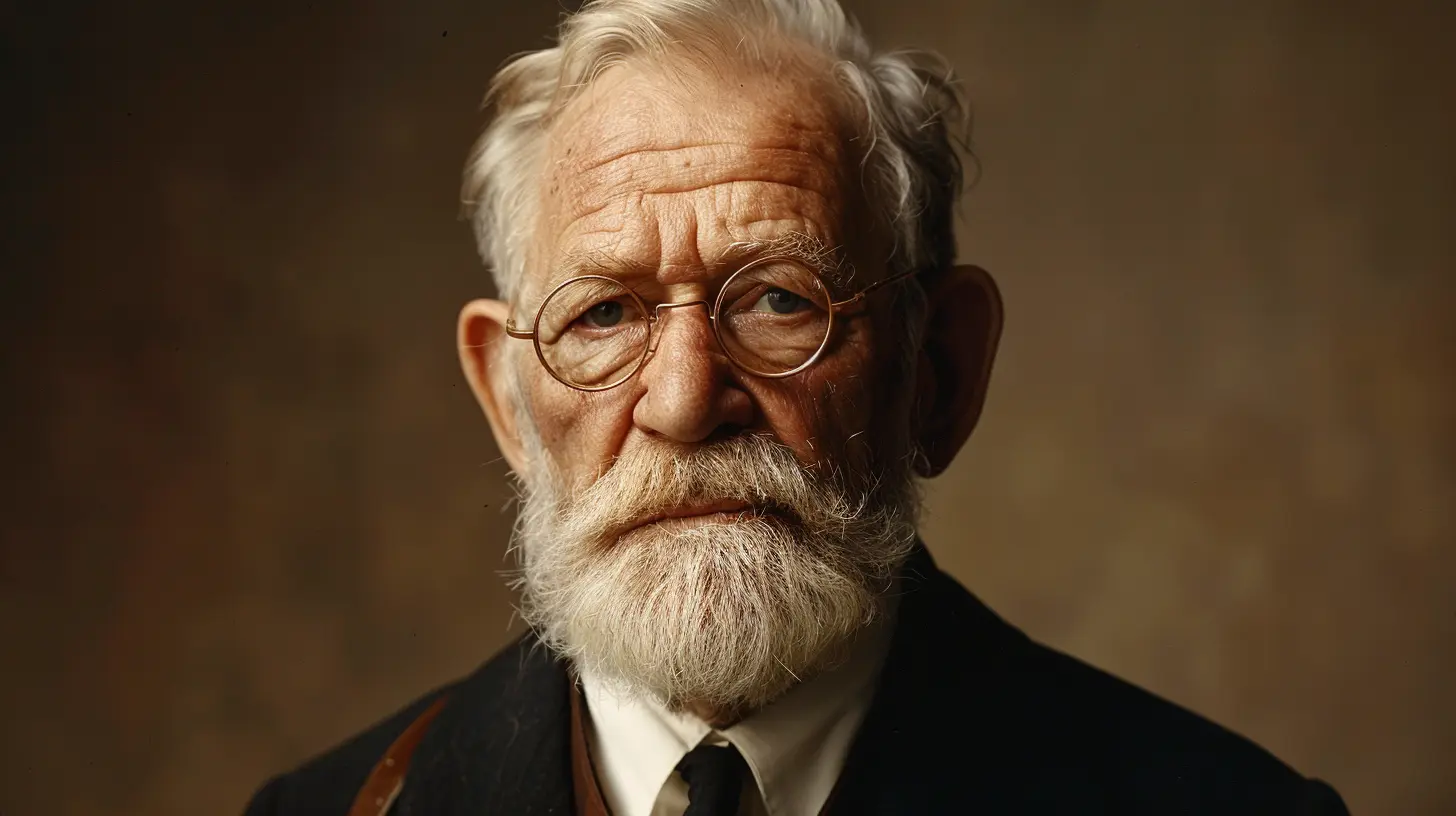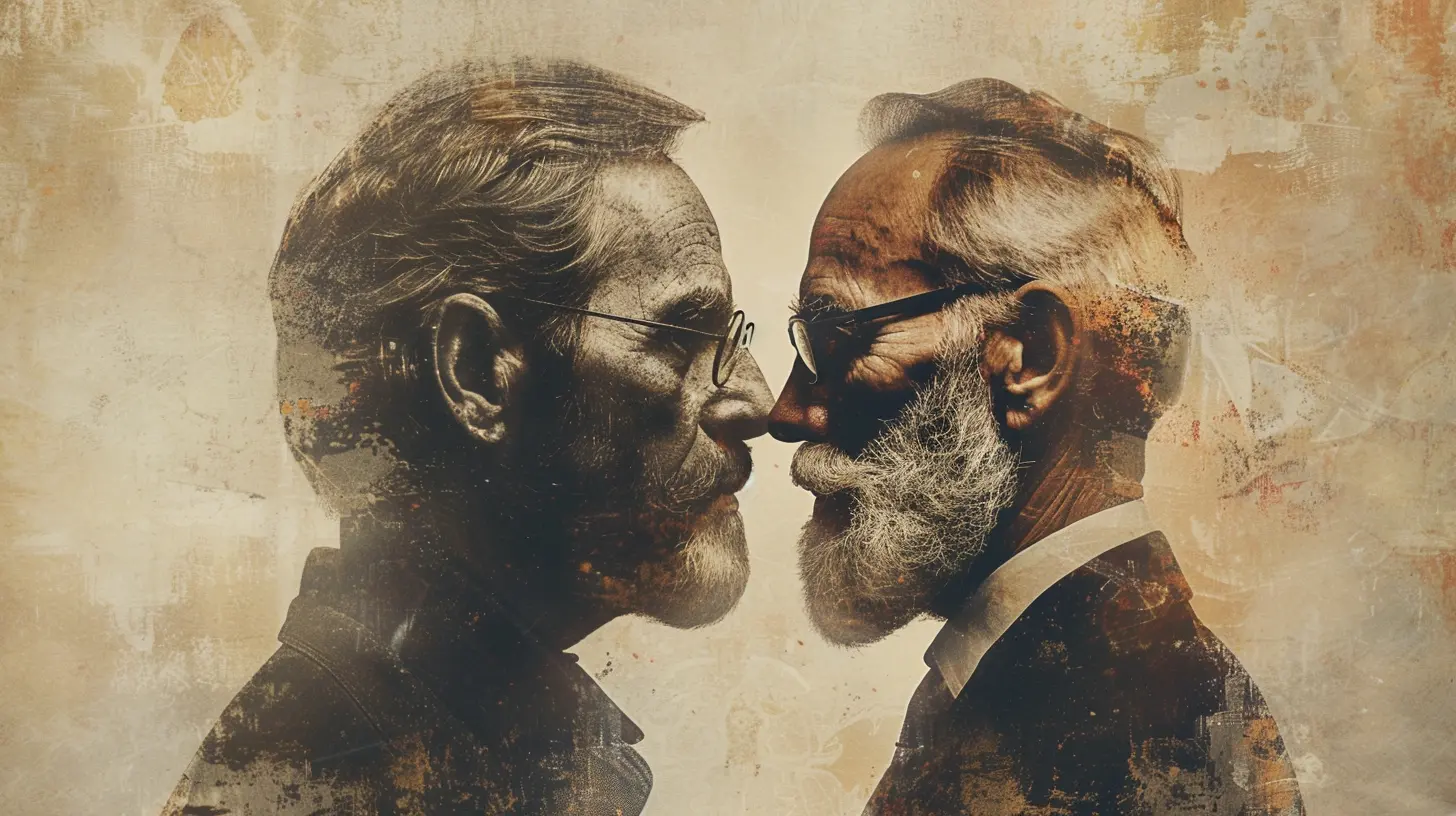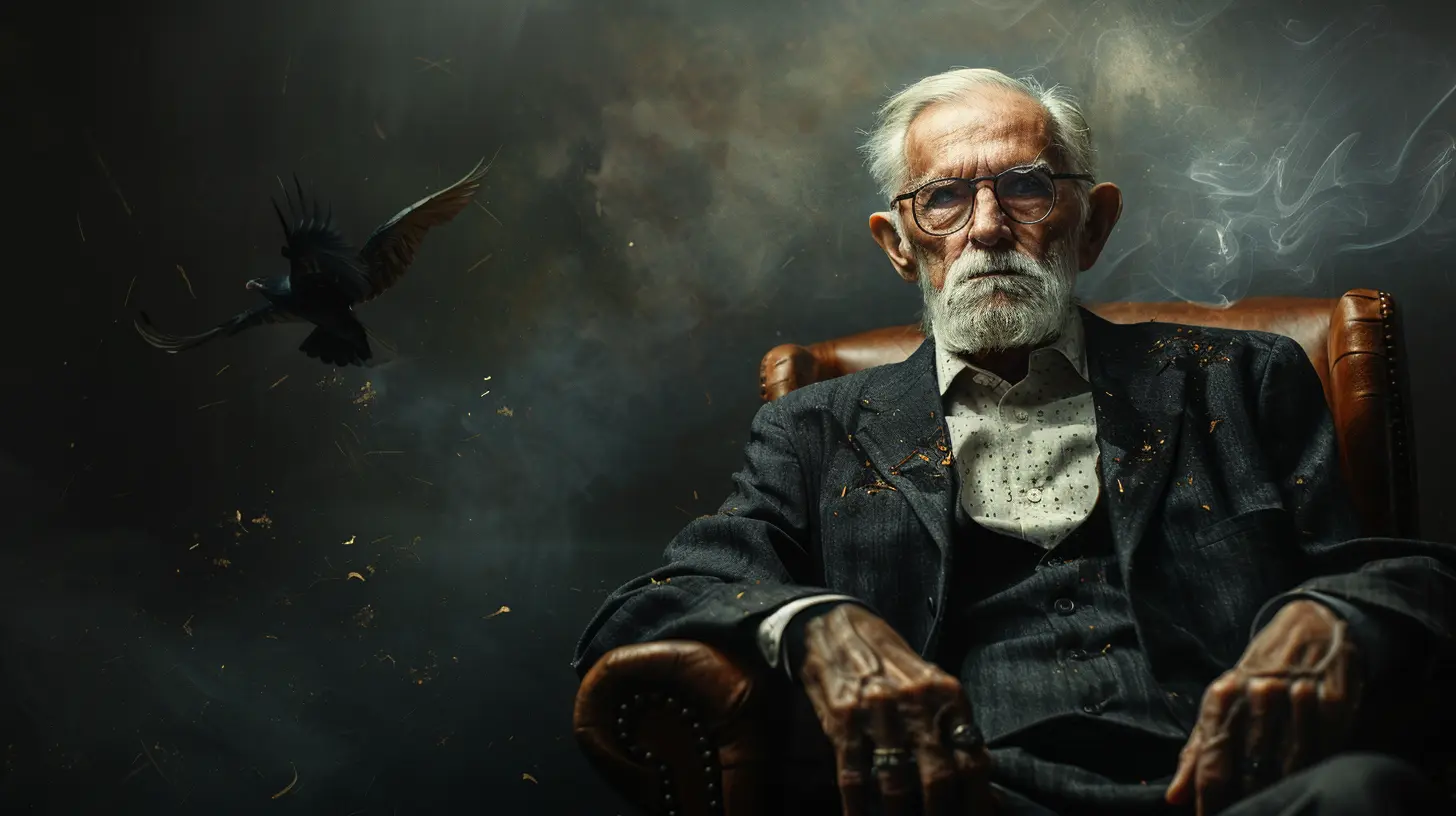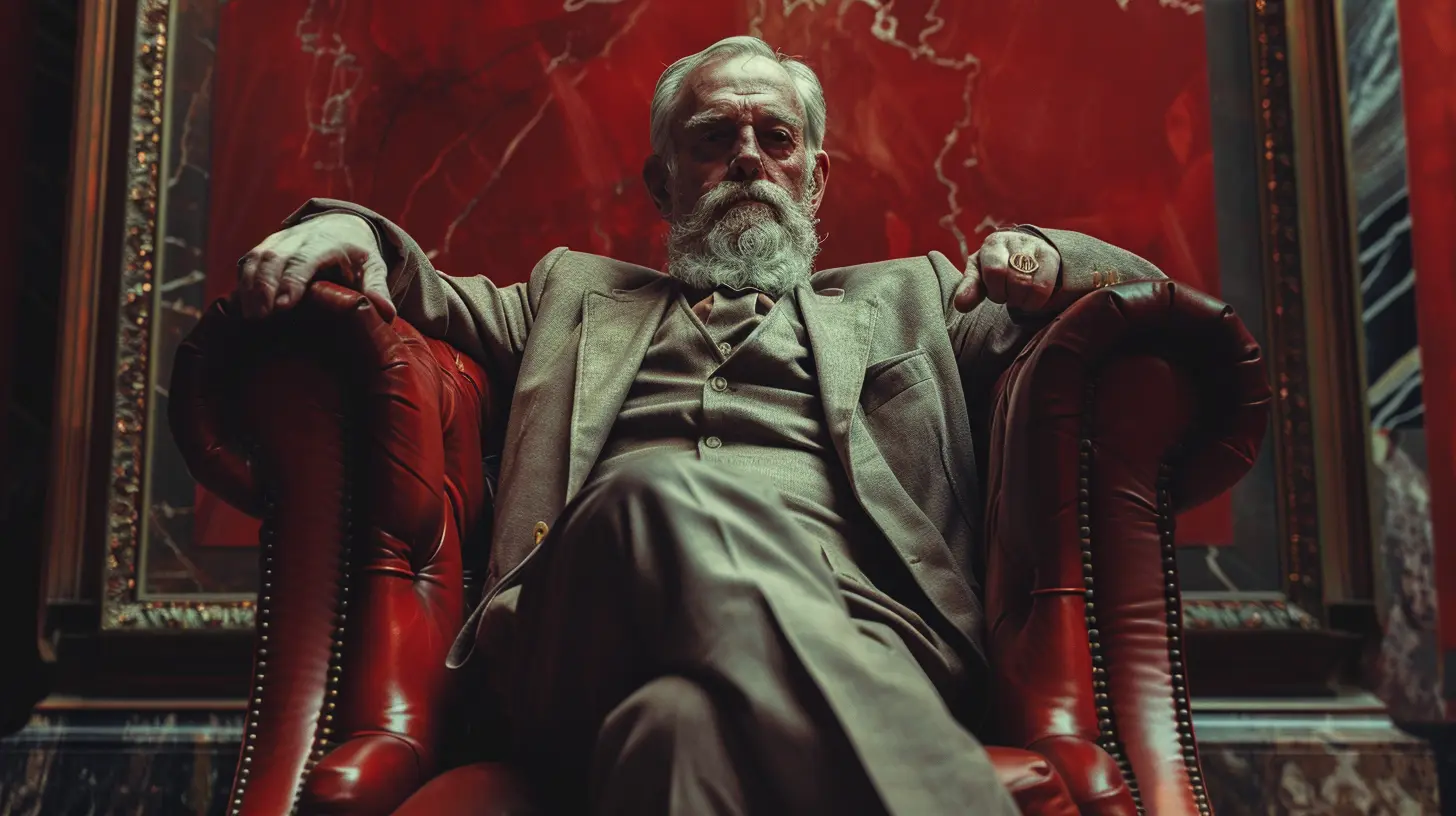The Role of the Father in Psychoanalysis: From Freud to Modern Theories
22 May 2025
Fatherhood is a concept that has intrigued psychologists for over a century. From Freud’s groundbreaking theories to modern interpretations, the father’s role in a child's psychological development has sparked intense debate. But what does a father really represent in psychoanalysis? Is he just a disciplinarian, or does his influence run deeper? Let’s dive into the fascinating evolution of the father’s role in psychoanalysis and see how modern perspectives have reshaped this age-old idea. 
Freud's Interpretation: The Father as Authority and Rival
When we talk about psychoanalysis and fathers, we have to start with Sigmund Freud—the father of psychoanalysis himself. He placed enormous emphasis on the role of the father in a child's development.The Oedipus Complex: A Love-Hate Relationship
One of Freud’s most famous (and controversial) theories is the Oedipus complex. According to Freud, between the ages of 3 and 6, boys develop unconscious desires for their mothers. At the same time, they view their fathers as obstacles standing in the way of these desires. This creates a mix of admiration and rivalry—on the one hand, the father is a powerful authority figure, but on the other, he’s also a rival for the mother’s affection.Freud believed that resolving this conflict was crucial for healthy psychological development. A successful resolution meant that the child identified with the father rather than seeing him as a threat. This, in turn, laid the foundation for moral development, social behavior, and even gender identity.
The Father as the Symbol of Authority
In Freud's view, the father isn’t just a real person—he also represents societal rules and moral boundaries. He becomes the “lawgiver,” enforcing discipline and teaching the child to control their impulses. This notion of the father as an authority figure would later influence many other psychological theories.But is the father always a figure of repression? Or could his role be more nurturing than Freud suggested? Let’s find out. 
Jung's Perspective: The Wise and Protective Father
Carl Jung, another giant in psychoanalysis, had a different take on the father figure. While Freud focused on conflict, Jung saw the father as a guiding force—a symbol of wisdom, protection, and the development of the self.The Archetypal Father
Jung introduced the concept of archetypes, universal patterns that shape human experiences. Among them is the father archetype, which can manifest in various ways:- As a wise teacher, guiding the child toward self-discovery.
- As a protector, offering security and emotional stability.
- As a figure of authority, but not necessarily in a negative way—more as a mentor than a rival.
Jung’s interpretation broadens the father’s role beyond Freud’s rigid structure. Instead of just being a figure of conflict, the father can also be a source of wisdom and support, crucial for the child’s development. 
Lacan's Contribution: The Symbolic Father and the Law
Jacques Lacan, a French psychoanalyst, took Freud’s ideas and added a linguistic twist. He introduced the concept of the “Name-of-the-Father” (Nom-du-Père), which plays a crucial role in the child’s entry into the social world.The Symbolic Role of the Father
For Lacan, the father isn't just a biological parent—he is a symbol of language, society, and cultural norms. The child moves from the “imaginary” world (early childhood, dominated by closeness to the mother) to the “symbolic” world (where they recognize external rules and language) through the father’s influence.This means that the father’s role isn’t just about discipline; it’s about introducing the child to the broader world of relationships, communication, and self-identity.
But what happens when this symbolic role is missing? According to Lacan, it can lead to difficulties in understanding boundaries and developing a stable self-image. 
Modern Perspectives: The Evolving Role of Fatherhood
Fast forward to today, and psychological theories about fatherhood have drastically evolved. The rigid, authoritarian father of Freud’s time has given way to a more emotionally involved and nurturing figure.Attachment Theory and the Father’s Warmth
John Bowlby’s Attachment Theory initially focused on the mother-child bond, but later research revealed that fathers play an equally crucial role in emotional development.Fathers who are emotionally present help foster secure attachment, leading to:
- Greater emotional resilience
- Stronger self-esteem
- Better social relationships
Unlike Freud’s emphasis on rivalry, modern psychologists recognize that fathers contribute significantly to a child's well-being through love, guidance, and emotional availability.
The Impact of Father Absence
Studies have shown that the absence of a father—whether due to separation, neglect, or emotional unavailability—can have profound psychological effects. Children without a strong father figure may struggle with:- Low self-confidence
- Difficulty in forming relationships
- Higher risk of anxiety and depression
However, it’s not just about biological fathers. What matters is the presence of a father figure—a mentor, guardian, or role model who provides stability and care.
The Father in Contemporary Psychoanalysis
Modern psychoanalysis no longer sees the father as just a rival or disciplinarian. Instead, contemporary theories highlight the flexibility of fatherhood.The Nurturing vs. Authoritarian Father
Today, we recognize that fathers can be both nurturing and authoritative. They can be:- A secure base for emotional support
- A mentor who guides personal development
- A disciplinarian, but in a compassionate and understanding way
Fathers in the Digital Age
With changes in family dynamics (single-parent households, same-sex parenting, co-parenting), the definition of fatherhood is evolving. Fathers are now more involved in caregiving, emotional nurturing, and shared responsibilities—challenging the outdated notion of the distant, unemotional father figure.Conclusion: Rethinking the Role of Fathers
From Freud’s authoritarian father to modern nurturing figures, the role of the father in psychoanalysis has undergone a remarkable transformation. While Freud saw the father primarily as a rival and lawgiver, later theories have emphasized his role as a mentor, protector, and emotional guide.Today, we understand that a father’s influence is vast, shaping not just a child’s behavior but also their sense of self, emotional well-being, and relationships. As society continues to redefine gender roles and parenting structures, one thing remains clear: the presence of a caring, engaged father (or father figure) is invaluable in a child’s psychological development.
So, is the father just an authority figure? Far from it. He is a teacher, a protector, a role model, and—above all—a fundamental pillar in shaping a child's identity.
all images in this post were generated using AI tools
Category:
PsychoanalysisAuthor:

Paulina Sanders
Discussion
rate this article
3 comments
Grace McCaffrey
Thank you for this insightful exploration of the evolving role of fathers in psychoanalysis. It’s fascinating to see how contemporary theories expand upon Freud's foundations, emphasizing the importance of paternal influence in emotional development and therapy.
June 11, 2025 at 4:03 PM

Paulina Sanders
Thank you for your thoughtful comment! I’m glad you found the exploration of paternal influence in psychoanalysis engaging. It’s a vital topic that continues to evolve.
Ivy McKittrick
Fathers: the unsung heroes or the ultimate Freudian slip? Discuss!
May 28, 2025 at 3:49 PM

Paulina Sanders
Fathers are often viewed as unsung heroes in psychoanalysis, providing essential support and guidance. However, they can also represent the complexities of identity and desire, akin to a Freudian slip, revealing deeper psychological truths about family dynamics and individual development. This duality highlights their crucial and multifaceted role in shaping our psyche.
Tempest Hill
Insightful read! Exploring father figures in psychoanalysis is so fascinating!
May 22, 2025 at 3:12 AM

Paulina Sanders
Thank you! I'm glad you found it insightful—father figures truly play a crucial role in psychoanalysis.



